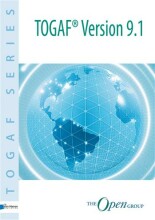Summary: B&c 2
- This + 400k other summaries
- A unique study and practice tool
- Never study anything twice again
- Get the grades you hope for
- 100% sure, 100% understanding
Read the summary and the most important questions on B&C 2
-
Lecture 8
This is a preview. There are 15 more flashcards available for chapter 06/10/2020
Show more cards here -
What are different types of brain injuries?
Non-Progressive:
· Traumatic brain injury
· Stroke
· Encephalitis
· Anoxia (no air to the brain)
· Epilepsy
Ø Lot of treatment interventions are designed for these
Progressive:
· Dementia
· MS
· Parkinson’s disease
· Huntingtons disease
· Brain tumors
Ø Therapy is getting better -
When to incorporate CR?
Stage 1: acutre (0-1 month): hospital, lifesaving measures
Stage 2: subacute (upto 6 months): spontaneous recovery, clinical rehabilitation, often emphasis on sensorimotor rehabilitation
Stage 3: chronic (after 6 months), outpatient rehabilitation, emphasis on cognitive and emotional problems -
What is neuropsychological rehabilitation?
Is more broad and is a process whereby brain injured people work together with health proffessionals to remediate or alleviate the amelioration of cognitive, emotional, psychosocial and behavioural deficits caused by an insult to the brain.
Also meaningful goals etc is important -
What is the ICF model?
>cognitive rehabilitation is more about brain structure and function impairment
>neuropsychological rehabilitation is more focused on activity and participation -
What is the Fasotti Model?
Cognitive training> cognitive rehabilitation>neuropsychological rehabilitation> clinical neuropsychology discipline -
What is the clinical neuropsychology description?
-scientific research
-assesment
-treatment -
What is function training?
Repeating a practice approach really often so the function restores (like muscles, get stronger) (Brain training, also apps)
Ø Not really supported per se by evidence -
What are the issues with this training?
Generalization
Ø Near transfer: tasks who are really alike can be done again, some support
Ø Far transfer: skills transfer to tasks who are a bit more different can be done again (like going to the supermarket) > NO support
Long term: doesn’t do anything in the long run -
What are the evidence of gaming?
-Healthy People who game 4-6 hours a day
> Have faster RT to attentional capture
>Can also better neglect irrelevant cues -
What is the function of NPR game-app?
didn’t seem to imbrove cognitive function
B . . . NPR test should also include outcome measures on daily functioning, self-efficacy and the quality of lige
SO . . . through interviews it occurred
Ø Paricipiants felt more confident in their improvement on selective attention
Participants also had decrease in feelings of sensory overload and increases in activities and social participation
- Higher grades + faster learning
- Never study anything twice
- 100% sure, 100% understanding

































